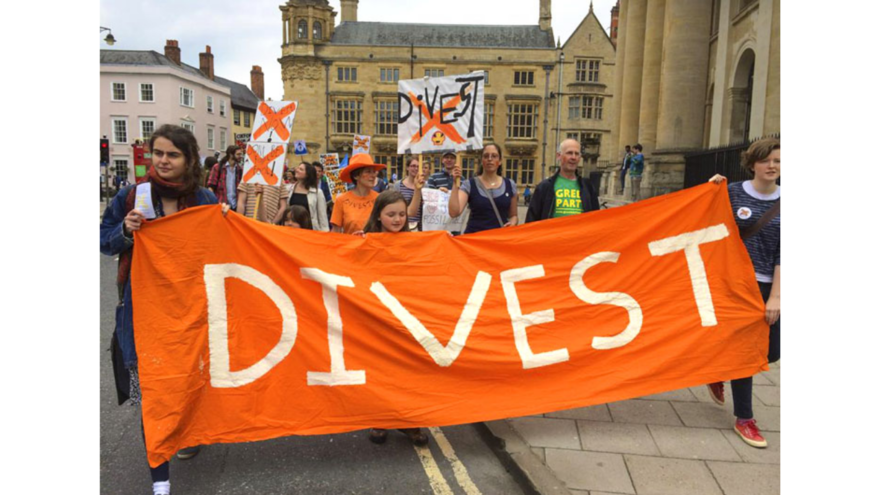
The divestment movement aims to make progressive and ground-breaking economic, social, and political changes by pulling funding from contributors of climate change, abusive labor practices, and other political issues.
The divestment movement aims to make progressive and ground-breaking economic, social, and political changes by pulling funding from contributors of climate change, abusive labor practices, and other political issues. Essentially, to divest is to take away possessions from someone, or to cease payment to someone. In a world that is heavily controlled by money, this tactic, when done in mass numbers, can make substantial change.
There are many important causes and reasons for one to want to divest from companies and corporations. However, one that has been gaining momentum and traction is the divestment from fossil fuels and other large contributors to climate change. According to The Guardian, 100 companies are responsible for 71% of global emissions.
For example, on December 9th, 2020, the state of New York announced it would divest from oil and gas. This pivotal action was encouraged by the divestment movement and young people calling for a new way of managing money. This decision was also made due to pressures from activists who declare it is time to start making changes.
Since the 70's, the oil and gas industries have funded and promoted mass amounts of misinformation on climate science. These industries also have nearly limitless political resources to stop governments from regulating planet-heating pollution. These corporations and industries have influence, funding, and connection to keep the industries alive. In addition, the dependence on fossil fuels in countries like the United States has spread to countries such as India, China, and Japan. It is undeniable that in the 21st Century, a large portion of the population relies on oil, gas, and other fossil fuels. This deep connection between human existence and the reliance on fossil fuels come at a severe cost to the environment and its living beings.
According to climate change journalist Nafeez Ahmed, "By 2050, we could retain high levels of GDP, at the price of a world wracked by minerals and materials shortages, catastrophic climate change, and a stuttering clean energy transition —paving the way for a slowly crumbling civilization. . . . Or, we could ditch the GDP and enter a world of abundance, with energy consumption safely contained within planetary boundaries, and high-tech economies that support jobs, health and education for everyone without costing the earth,"
Divesting allows the ability to act in accordance with larger political movements. Divesting is a form of solidarity, as well. The berry company Driscoll's has been outed as being cruel to workers in 2016 and in 2020. Farmers were underpaid and put under extremely harsh working conditions; workers have boycotted several times. Consumers across the world had rallied together and decided to stop purchasing Driscoll's berries as a result. The disinvestment in products deemed as cruel or unethical is crucial for supporting workers and humanitarian rights across the globe.
The UW Divestment Coalition's mission is to unite universities in the University of Wisconsin System to demand a just divestment from fossil fuels in order to combat climate change.
The UW Divestment Coalition is demanding: transparency and disclosure of all UW investments, the cessation of all new investments in oil, gas, and coal companies, the sale of existing investments tied to oil, gas, and coal in the next 3-5 years, and the investment in clean energy solutions.
Similarly, the University of Minnesota Twin Cities has many student groups focused on divestment. The student group UMN Climate Strike focuses on climate advocacy, and has coordinated events related to fossil fuel divestment in the past. The Twin Cities undergraduate student government has also advocated for fossil fuel divestment.
These examples of social change through divestment is a way to hold corporations accountable. Industries and corporations will have less impact and control over important aspects of human life if there is a large movement away from them. Money controls many things, and you can control your money.